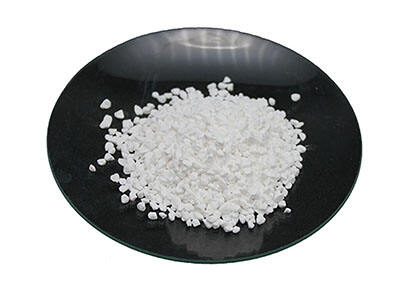What Determines the Efficacy of TCCA Chlorine Tablets in Pool Water Sanitation
The safety and health of the swimmers must be taken care of through maintaining and sanitizing of the swimming pools. The trichloroisocyanuric acid (TCCA) is a widely used chemical in the process of treating the pool water due to its high chlorine level and its capacity to kill bacteria, virus and algae. The efficiency of using the TCCA chlorine tablets is pegged on the knowledge of what makes them work and this is significant in the control of the pool effectively. The paper will discuss the critical variables that will dictate the effectiveness of the TCCA pills which are the kinetics of release of chlorine and the purity of the active ingredient.
Chlorine Release Kinetics of TCCA 90 Granular vs. 200g Tablet Formulations
The rate of release of chlorine in the pool water is one of the basic parts of the efficacy of TCCA. The shape of TCCA (granular or tablet) can play a major role in influencing the kinetics of chlorine release. TCCA 90 Granular is lower in particle size which means that it dissolves more easily than a tablet formulation. This dissolution is beneficial in cases where rapid chlorination of pools is required but it might cause rapid depletion and uneven distribution.
Conversely, in 200g tablet preparations, chlorine is made to be more regulated and slow in its release. These tablets are slow to break down meaning that there is a constant supply of chlorine to ensure that the sanitation level is maintained. They are also suited to routine care since they guarantee long-term safety against the growth of microbes with minimum reapplication. The slower dissolution, however, may not be applicable to those situations that need high chlorine levels that are very urgent.
The decision on whether to use granular or tablet form should be based on the particular requirements of the pool and the habits of its usage. In busy swimming centers or in areas that receive high rainfall and the rapid rise in chlorine levels is required, then the granular can be desired. On the other hand, the constant discharge profile of 200g tablets can be used in residential or less-used pools.
The Role of Active Ingredient Purity in TCCA Tablets for Long-Term Algae Control
The purity of the active ingredient is another important criterion that will define the effectiveness of TCCA tablets. The stability and the performance of chlorine release can be compromised by the presence of impurities, resulting in an inefficient performance in sanitation.
The high quality of TCCA tablets is facilitating the availability of maximum chlorine needed to suppress the growth of algae in the long run. Contaminants may be impurities which decrease the total concentration of chlorine and causing its antimicrobial effect. This affects the sanitation and results in the sustained blooms of algae, which is not only unsightly, but also harmful to health.
Furthermore, tablet-active ingredient high purity is useful in ensuring that the concentration of pH in the pool remains stable. PH difference can influence the effectiveness of chlorine; therefore, stability can help with more effective control over algae. Allied with a steady chlorine release process, this high-grade TCCA will guarantee that algae will never develop a resistance and be problematic in the long term.
Tablets of TCCA should thus be given the utmost priority by operators of pools who are recommended to obtain the grade of the same that ensures high purity. It is also suggested that pool water be tested on a regular basis to monitor chlorine level and pH levels as this is a good way of ensuring that the tablets are working and that treatment programs are adjusted accordingly.
Conclusion
Chlorine release kinetics and purity of the active ingredients determine the efficacy of TCCA chlorine tablets in the sanitation of pool water. It is by knowing all these factors that the operators of the pools will be able to make sound judgments on the choice and use of TCCA products.
The granular is quick in chlorine delivery to urgent requirements, and the 200g tablet will offer consistent protection in the long run. In the meantime, purity of high purity in TCCA pills strengthens the long-term management of algae and the stability of the pool. Through these factors, owners and operators of a pool can offer safe, clean and pleasant swimming conditions throughout the year.
 EN
EN
 AR
AR BG
BG HR
HR NL
NL FI
FI FR
FR DE
DE IT
IT KO
KO NO
NO PL
PL PT
PT RU
RU ES
ES SV
SV TL
TL ID
ID LV
LV SL
SL UK
UK VI
VI SQ
SQ HU
HU MT
MT TH
TH TR
TR FA
FA MS
MS BE
BE HY
HY AZ
AZ KA
KA BN
BN CEB
CEB






